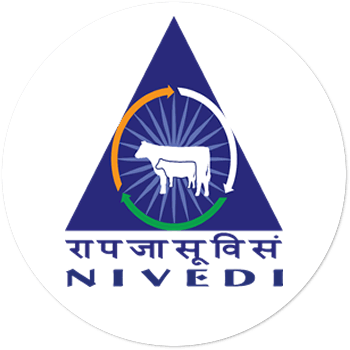Press Release
23rd September 2024 (Day 7):
As part of Swachhta Pakhwada from 17th September to 02nd October 2024, following activities were carried out on 23.09.2024. Mega Cleanliness Drives with citizen participation & partner mobilization tourist spots, religious & spiritual places ICAR-National Institute of Veterinary Epidemiology and Disease Informatics (ICAR-NIVEDI) has undertaken cleanliness drive at a prominent religious and spiritual place. This initiative aims to promote hygiene, environmental sustainability and civic responsibility through mass citizen participation and mobilization of local partners. Given the importance of maintaining cleanliness in these high-footfall area, ICAR-NIVEDI’s efforts emphasize cleanliness, waste management, and the preservation of cultural and spiritual heritage. This activity was coordinated by Dr. C. S. Sathish Gowda, Scientist Dr. Narayanan G, Senior scientist, Dr. R. Sridevi, Senior scientist.
The objectives of the mega cleanliness drive rat Prasanna Anjaneya and Devi Maremma temple include:
1. Maintain Hygiene and Cleanliness: To ensure these public spaces, which attract a large number of visitors and devotees, remain clean, litter-free and hygienic.
2. Raise Environmental Awareness: Encourage pilgrims, and local residents to adopt sustainable waste management practices.
3. Partnerships with religious and spiritual institutions: Religious organizations played a key role in spreading the message of cleanliness as part of spiritual practice. Religious leaders promoted participation in the drives, connecting cleanliness with values of purity and sanctity.
Key Activities under taken during Cleanliness Drive
1. Cleaning and Sanitation of Public Spaces: The main focus of the cleanliness drive was the physical cleaning of temple and surrounding public areas. Volunteers and staff worked together to remove litter, clean walkways and clear waste from streets and gardens.
2. Floral Waste Management at Religious Site: At religious places where floral offerings are common, the drives focused on collecting these offerings separately for composting instead of allowing them to contribute to landfills.
Impact:
Community Ownership and Participation:
The active involvement of local communities, religious leaders, and government partners fostered a sense of ownership and responsibility for maintaining cleanliness in temple premises.

